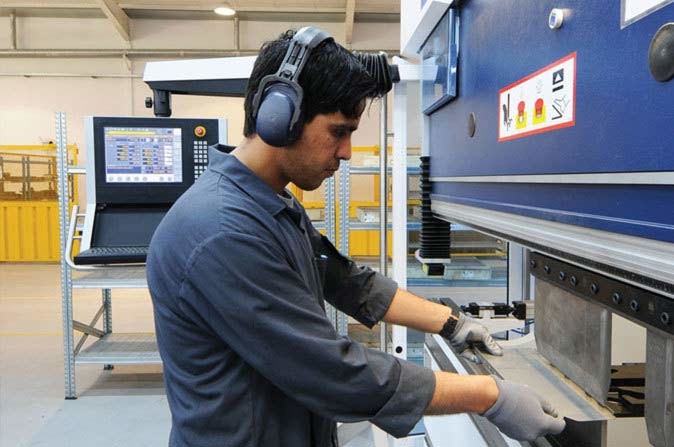Economy / Tunisia
Invest on a new start
Currently in the midst of building its political system and defining its society, Tunisia is at a turning point in its history. Is it still a good place to invest in? An outlook on the current situation and future prospects.

Tunisian skilled worker concentrated on a precision machine
It is not by chance that Tunisia has scaled to the top position in Africa and 40th in the world in terms of global competitiveness according to the World Economic Forum 2011-2012 ranking. Tunisia owes this to its essential assets, which not even the global recession or the upheaval caused by the change in political system can take away: the strategic location, the quality of its workers, the infrastructure and the appealing framework of incentives. Given its closeness to Europe, its borders with Algeria and Libya and its status as the gateway to Sub-Saharan Africa, it is focused on both existing and potential markets. Even its history, with contributions from various civilisations, has written into its DNA a propensity for trade.
Education – a major asset
Ever since its independence, Tunisia has followed a policy of providing education for all. This makes it the country of the southern bank of Mediterranean with the highest number of engineering and technical graduates per capita, according to the study ‘National industrial strategy for the years leading up to 2016’, by Ernst & Young. Moreover, thanks to the equal status of women, the percentage of female graduates stands at 62.5%. The workforce is thus highly qualified and capable of quickly assimilating technological advances. Many Tunisians speak and write French fluently. Italian and German are also spoken by a large percentage of the population, followed by English and Russian. This educational policy provides an immensely valuable depth of talent and places Tunisia amongst the best value for money propositions in terms of human resources.
From the old investment incentive regulations …
Fully-exporting offshore companies can enjoy extensive tax breaks in Tunisia. The Investment Incentives Code, in force since 1994, provides the freedom to invest in most sectors with notable advantages: full tax exemption on export revenues during the first ten years and 50% reduction in corporate tax thereafter; total exemption for reinvested profits; full exemption from dues and taxes on capital assets; assumption by the State of the employer’s contribution to the social security system in the industrial, tourism and craftsmanship sectors.
…to a new code in the making
Investor concerns regarding political instability prompted the Tunisian State to react. On 5th March 2013, Mustapha Ben Jaâfer, president of the National Constituent Assembly (NCA), presented a draft of the new Tunisian Investment Code to the French National Assembly. Its goal is to provide greater transparency and assurances to investors. In the run-up to the November 2013 elections, the application of this new Code will undoubtedly be viewed as a token of the Tunisian will to provide visibility to investors and to present Tunisia as it really is: an attractive proposal.
